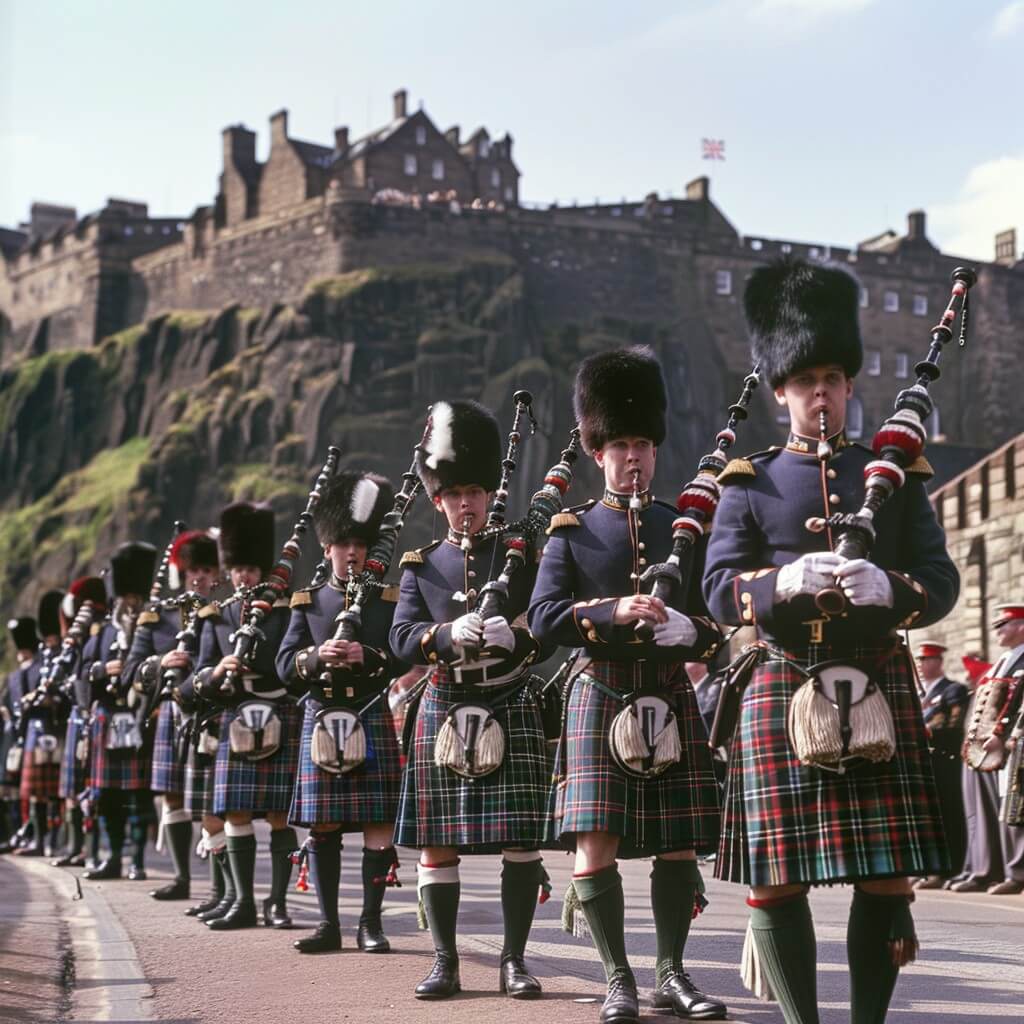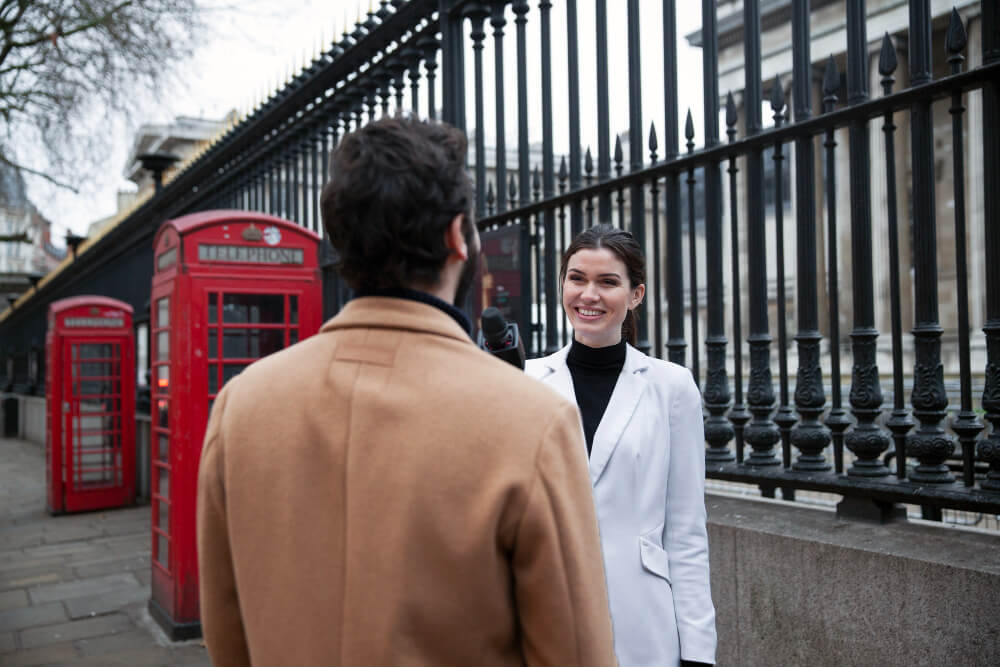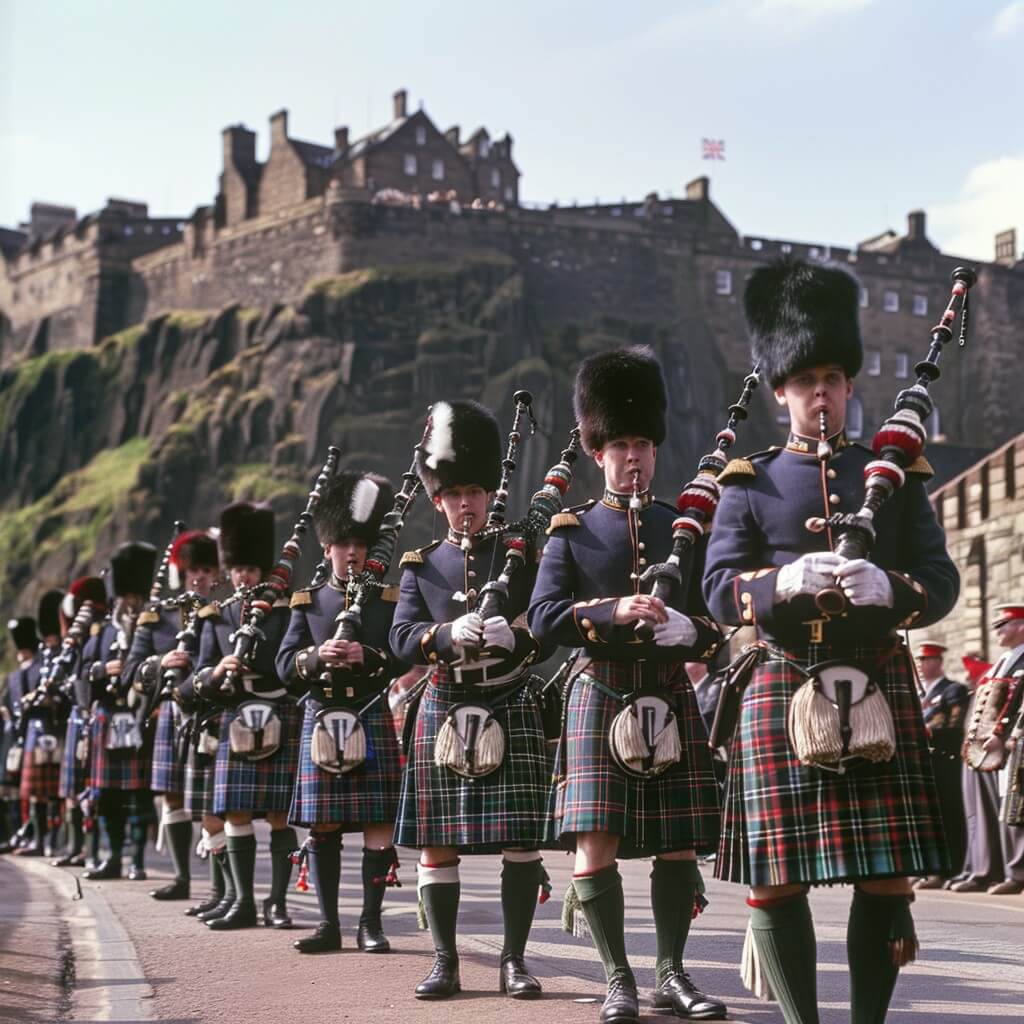Planning a trip to the UK travel guide can be both exciting and overwhelming. Whether you’re a first-time visitor or a seasoned traveller, you probably have a few questions and concerns.
Let’s dive into some common queries and provide practical tips to make your UK adventure unforgettable.

Common Questions and Concerns
What are the must-see destinations in the UK?
UK travel guide is brimming with iconic landmarks and hidden gems. From the historic streets of London to the scenic landscapes of the Scottish Highlands, there’s something for everyone. Some of the top destinations include:
- London: The capital city, renowned for its history, culture, and landmarks.
- Edinburgh: Scotland’s charming and historic capital.
- The Cotswolds: Picturesque countryside known for its beauty.
- Lake District: A haven for nature lovers and outdoor enthusiasts.
- Bath: Famous for its Roman-built baths and stunning Georgian architecture.
- York: Rich in medieval history and home to the magnificent York Minster.
- Cornwall: Beautiful beaches, rugged coastline, and quaint fishing villages.
How do I get around the UK?
Navigating the UK is relatively easy thanks to its extensive public transportation system. Trains, buses, and even domestic flights can get you to your destination efficiently.
For those who prefer more flexibility, renting a car is also a great option.
What’s the best time to visit the UK?
The UK is a year-round destination, but the best time to visit depends on your preferences. Here’s a breakdown of what each season offers:
- Spring (March to May): Mild weather, blooming flowers, and fewer tourists. Ideal for exploring gardens and countryside.
- Summer (June to August): Warmest weather and longest days. Perfect for outdoor activities, festivals, and seaside trips. However, it’s also the peak tourist season.
- Autumn (September to November): Crisp air and stunning fall foliage. Great for hiking and enjoying the scenic landscapes.
- Winter (December to February): Cold weather but fewer crowds. Christmas markets, cozy pubs, and potential snowfall in some areas.
What should I pack for my UK trip?
Pack layers to adapt to the UK’s unpredictable weather. Comfortable walking shoes are a must, and don’t forget an umbrella! Here’s a detailed packing list:
- Clothing: Layers (t-shirts, sweaters, jackets), comfortable walking shoes, raincoat or umbrella, formal attire for dining or theatre, and swimwear if you plan to visit spas or beaches.
- Accessories: Travel adapter (UK uses Type G plug), reusable water bottle, sunglasses, hat, and a daypack for daily excursions.
- Toiletries: Basic toiletries, any prescription medications, and travel-sized versions of your favorite products.
- Technology: Smartphone, charger, portable power bank, camera, and a SIM card or portable Wi-Fi device for internet access.
Top Destinations to Explore
London
London is a city that never disappoints. Here are some must-see attractions and activities:
- Buckingham Palace: Witness the Changing of the Guard ceremony.
- The Tower of London: Explore the historic fortress and see the Crown Jewels.
- The British Museum: Discover artifacts from around the world.
- The West End: Catch a world-class theatre production.
- The Shard: Enjoy breathtaking views of the city from the observation deck.
- Hyde Park: Relax and unwind in one of London’s largest parks.
- Camden Market: Shop for unique finds and enjoy diverse street food.
Edinburgh
Edinburgh, Scotland’s capital, is famous for its medieval Old Town and elegant Georgian New Town.
Key highlights include:
- Edinburgh Castle: Perched on a hill, offering stunning views and a deep dive into Scottish history.
- The Royal Mile: A historic street filled with shops, pubs, and landmarks.
- Arthur’s Seat: Hike to the top for panoramic views of the city.
- Holyrood Palace: The Queen’s official residence in Scotland.
- National Museum of Scotland: Explore the rich history and culture of Scotland.
- Edinburgh Festival Fringe: Experience the world’s largest arts festival if you visit in August.
The Cotswolds
For a taste of the English countryside, the Cotswolds is perfect.
Here are some highlights:
- Bourton-on-the-Water: Often referred to as the “Venice of the Cotswolds” with its charming waterways.
- Stow-on-the-Wold: A picturesque market town with antique shops and cosy tea rooms.
- Bibury: Known for Arlington Row, a row of picturesque cottages.
- Cotswold Wildlife Park: Great for families, featuring animals and beautiful gardens.
- Hiking Trails: Explore the rolling hills and scenic landscapes.
Lake District
Nature lovers will adore the Lake District, known for its stunning lakes, mountains, and quaint villages.
Popular activities include:
- Hiking: Trails range from easy walks to challenging climbs, such as Scafell Pike, the highest peak in England.
- Boating: Enjoy boat trips on Lake Windermere or Derwentwater.
- Beatrix Potter’s House: Visit the home of the famous author in Near Sawrey.
- Grasmere: Explore the village where poet William Wordsworth lived.
- Keswick: A charming market town with access to various outdoor activities.
Bath
Bath is renowned for its Roman-built baths and stunning Georgian architecture.
Key attractions include:
- The Roman Baths: Explore the ancient thermal spa complex.
- Bath Abbey: A beautiful Gothic church with stunning interiors.
- The Royal Crescent: A row of 30 terraced houses laid out in a sweeping crescent.
- Thermae Bath Spa: Relax in the modern spa that uses the city’s natural hot springs.
- Pulteney Bridge: One of the most beautiful bridges in the world, lined with shops.
York
Rich in mediaeval history, York is a city full of charm and intrigue.
Don’t miss:
- York Minster: One of the largest cathedrals in Northern Europe.
- The Shambles: A narrow, mediaeval street lined with timber-framed buildings.
- York Castle Museum: Learn about the history of York through fascinating exhibits.
- Jorvik Viking Centre: Experience life in Viking-age York.
- City Walls: Walk along the ancient walls for a unique perspective of the city.
Cornwall
Cornwall offers beautiful beaches, rugged coastline, and quaint fishing villages.
Highlights include:
- St Ives: Known for its art scene and lovely beaches.
- The Eden Project: An extraordinary global garden housed in biomes.
- Land’s End: The most westerly point of mainland England, with dramatic coastal views.
- Tintagel Castle: Steeped in Arthurian legend, located on a rugged cliff.
- Padstow: Famous for its seafood and picturesque harbour.

Getting Around
Trains
The UK’s train network is extensive and can take you to most major cities and towns.
Here are some tips for train travel:
- Book in Advance: Save money by booking tickets ahead of time. Websites like National Rail and Trainline offer booking options.
- Rail Passes: Consider a BritRail Pass if you plan on travelling extensively by train. It offers unlimited travel for a set period.
- Seat Reservations: Some trains require seat reservations, so check ahead.
Buses
Buses are a budget-friendly way to travel, especially for shorter distances or rural areas.
Key bus companies include:
- National Express: Covers long-distance routes across the UK.
- Megabus: Offers affordable fares on various routes.
- Local Buses: Use for short trips within cities and towns.
Car Rentals
Renting a car gives you the freedom to explore at your own pace.
Consider these tips:
- Driving on the Left: Remember, in the UK, you’ll be driving on the left side of the road.
- Manual vs. Automatic: Most cars in the UK are manual, so if you prefer an automatic, book in advance.
- Navigation: Use GPS or a navigation app to help with directions.
- Parking: Be aware of parking restrictions and fees in cities.
Domestic Flights
For longer distances, domestic flights can save time. Major airlines include British Airways, EasyJet, and Ryanair. Airports like Heathrow, Gatwick, and Manchester offer numerous connections.
Tips for a Smooth Trip
- Book in Advance: Popular attractions and accommodations can fill up quickly, especially during peak seasons. Plan and book ahead to avoid disappointment.
- Use Contactless Payments: Most places accept contactless card payments, making transactions quick and easy. Apple Pay and Google Pay are also widely accepted.
- Stay Connected: Consider getting a local SIM card or a portable Wi-Fi device to stay connected throughout your trip. Many places offer free Wi-Fi, but it’s good to have your own connection.
- Language and Etiquette: English is the primary language, but be aware of regional accents and dialects. Politeness is valued, so remember to say “please” and “thank you.”
Adding a Personal Touch
During my first visit to the UK travel guide, I was captivated by the blend of modernity and history. Wandering through the cobblestone streets of York, I stumbled upon a quaint tea room where I enjoyed the best scone of my life. The friendly conversation with the owner added a personal touch to the experience, making it even more memorable.
In London, I took a leisurely stroll along the South Bank, enjoying street performances and soaking in the views of the Thames River. Each city in the UK has its own unique charm, and these personal experiences are what make travel truly special.
Local Cuisine
No trip to the UK is complete without indulging in some traditional British cuisine.
Here are a few must-try dishes:
- Fish and Chips: Freshly fried fish with crispy chips, often served with mushy peas.
- Sunday Roast: A hearty meal featuring roast meat, potatoes, vegetables, and Yorkshire pudding.
- Full English Breakfast: A filling breakfast with eggs, bacon, sausages, beans, toast, and black pudding.
- Cornish Pasty: A pastry filled with meat and vegetables, originating from Cornwall.
- Afternoon Tea: A quintessential British experience with tea, scones, clotted cream, and finger sandwiches.
Pubs and Local Brews
Pubs are an integral part of British culture, offering a cosy atmosphere and a chance to sample local brews.
Try a pint of ale, lager, or cider, and don’t hesitate to chat with the locals. Some famous pub chains include Wetherspoons and Greene King, but independent pubs often provide a more authentic experience.
Cultural Tips
Understanding local customs can enhance your travel experience:
- Queueing: The British are known for their orderly queuing. Always wait your turn in line.
- Tipping: Tipping is generally not mandatory, but it’s appreciated for good service. In restaurants, a tip of 10-15% is customary.
- Greetings: A handshake is a common form of greeting. In informal settings, a simple “hello” or “hi” is sufficient.
- Politeness: Use “please” and “thank you” regularly, and apologise if you accidentally bump into someone.
Accommodation Options
From luxurious hotels to cosy bed and breakfasts, the UK offers a wide range of accommodation options.
Here are a few to consider:
- Hotels: Options range from budget-friendly chains like Premier Inn and Travelodge to luxury hotels like The Ritz and The Savoy in London.
- Bed and Breakfasts: For a more personal touch, stay in a B&B where you’ll enjoy a home-cooked breakfast and local hospitality.
- Vacation Rentals: Platforms like Airbnb offer a variety of options, from city apartments to countryside cottages.
- Hostels: Ideal for budget travellers, hostels provide basic accommodations and a chance to meet fellow travellers.
- Country Inns: Experience rural charm by staying in a country inn, often located in picturesque villages.
Safety Tips
The UK is generally a safe destination, but it’s always wise to take precautions:
- Stay Aware: Keep an eye on your belongings, especially in crowded areas.
- Emergency Numbers: Dial 999 for emergencies (police, fire, ambulance).
- Local Laws: Be aware of local laws and customs to avoid any misunderstandings.
- Travel Insurance: Consider purchasing travel insurance to cover unexpected events like medical emergencies or trip cancellations.
Conclusion
The UK travel guide is a diverse and captivating destination, offering a rich tapestry of experiences for every type of traveler.
From the bustling streets of London to the tranquil landscapes of the Lake District, there’s always something new to discover.
By planning ahead, staying informed, and embracing local customs, you can make the most of your UK adventure.
Happy travels!
Answer
What is Rediscovering Britain?
Rediscovering Britain is a comprehensive travel guide aimed at helping visitors explore the diverse attractions of the UK, including its rich history, culture, and natural beauty across its four constituent countries: England, Scotland, Wales, and Northern Ireland.
What unique experiences does the guide offer?
The guide highlights unique experiences such as exploring historical landmarks, enjoying local cuisine, participating in cultural festivals, and discovering scenic landscapes like the Lake District and the Scottish Highlands, catering to a variety of interests from history buffs to outdoor enthusiasts.
How does Rediscovering Britain address travel logistics?
The guide provides practical information on travel logistics, including transportation options within the UK, tips for navigating public transport, and advice on accommodations ranging from hotels to charming bed-and-breakfasts.
Are there recommendations for family-friendly activities?
Yes, Rediscovering Britain includes family-friendly activities such as visiting educational museums, exploring national parks, and participating in local events that cater to children and families, ensuring a memorable experience for all ages.
What cultural insights does the guide provide?
The guide offers insights into the diverse cultures and traditions found throughout the UK travel guide, emphasising regional differences in dialects, cuisine, and customs.
It encourages visitors to engage with locals to enhance their understanding of British life.
